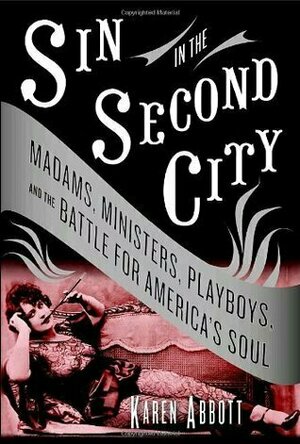
Sin in the Second City: Madams, Ministers, Playboys, and the Battle for America's Soul
Book
Step into the perfumed parlors of the Everleigh Club, the most famous brothel in American...
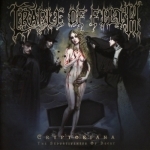
Cryptoriana: The Seductiveness of Decay by Cradle Of Filth
Album Watch
For the last quarter of a century, Cradle Of Filth have assumed the role of dark metal diarists,...
metal

Mission: Red Planet (Second Edition)
Tabletop Game
With technology rapidly developing and the human population growing, Victorian-era Earth is in dire...
Boardgames SpaceGames MarsGames 2015Games GamesMadeBetterThanTheOriginal
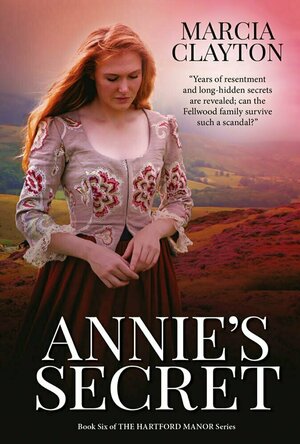
Annie's Secret (Hartford Manor #6)
Book
1887, North Devon, England When Lady Eleanor Fellwood gave birth to a badly deformed baby, she...
Historical Fiction Victorian Family Saga Historical Romance
BookblogbyCari (345 KP) rated The Corset in Books
Oct 16, 2018
Through successive visits, Ruth tells Dorothea her story. It all begins with Ruth as a victim; a victim of poverty, bullying and a physical attack. She becomes angry, hateful and vengeful. She is then pulled out of school to bring in a wage for her growing family. All her energy goes into sewing, sewing for money and sewing items for her soon to be born sister.
There are several macabre scenes at this point. Shortly after her sister’s birth, Ruth sews her a blanket with an angel embroidered in the corner. And it’s while she’s wrapped in the blanket that the new born dies, and the reason for the death is described by the slang “taken by the strangling angel”.
Ruth believes that she has the power to curse people to death with her sewing, and this is a belief that grows stronger with each garment that she sews. Ruth secretly enacts vengeance on her growing list of enemies, as more people die who are connected to Ruth and her sewing. The story intensifies as Ruth’s circumstances deteriorate at every turn.
While Ruth’s story becomes increasingly gothic, Dorothea’s chapters are light and breezy, concerned with finding the right suitor. With regards to her visits with Ruth, Dorothea’s attention diverts somewhat from her phrenology as she listens to her story - but she listens as a sceptic. She sees how bitter Ruth has been but does not see her as a murderess.
Towards the end of the book, Ruth faces her trial. But that is not the end of the drama! I did not see that ending coming!
The language of the book befits the era in which its set; and I often came across words I was unfamiliar with. This did not put me off at all. The book may be odd in its premise, but is more dark and sinister than most – thoroughly recommended!
Phil Leader (619 KP) rated The Kingdom Beyond the Waves in Books
Nov 18, 2019
Meanwhile, why is someone graverobbing obsolete steamman corpses from cemetaries? And why has Furnace-breath Nick - scourge of Quatershift - been asked to break a prisoner free?
For those unfamiliar with Hunt's incredibly imaginative world - revealed in this book to likely be a far future version of our own which somehow mirrors certain aspects such as Victorian England and the French Revolution - would soon be at home in this book, particularly as half of the book involves a trip up a native-infested jungle river worthy of Conrad. Meanwhile the trail is being followed from the other end and the smoggy streets of Middlesteel in the country of Jackals by Furnace-breath Nick's not so mild mannered alter ego, Cornelius Fortune.
The way the story unfolds is very reminiscent of Saturday morning serials that used to be popular when not everyone had a television. There are a series of episodes where our heroes are put into peril and yet somehow (mostly) break free. The difference is in the mostly. Hunt is not afraid of killing off a character and that keeps the reader on the edge of their seat and turning the pages to see if that really was the end or there is a miraculous escape on the cards.
The inventiveness Hunt showed in The Court of the Air is very much still evident with a fiendish plot and fantastic ideas zinging off the page together with very clever dialog. Once again this is a book to read carefully and not to skim, it will be so much more rewarding.
All in all this is a stronger book than the first and the characters in it are terrific, heroes and villains alike. There are still Deus Ex Machina escapes here and there but they are on the whole consistent with the world of Jackals.
I would very much recommend this to anyone who likes their science fiction broad and heading to steam punk rather than space opera (although it's not really steam punk) and their adventure old-school swashbuckling. Terrific work.
Lee (2222 KP) rated The Personal History of David Copperfield (2019) in Movies
Jan 26, 2020
Dev Patel stars as Copperfield, the star and narrator of the story which charts his personal rise from rags to riches during Victorian England. We begin though with Copperfield as an adult, recounting his life story to a small theatre audience as he steps into a painted backdrop behind him on stage, transporting him, and us, to the location of his birth. He enters the family home and continues to narrate from within the scene as his mother struggles with labour. It’s just one of a variety of wonderfully inventive storytelling devices that the movie employs throughout.
While the chaos of childbirth plays out, the first in a long line of star-studded supporting characters arrives, David’s eccentric Aunt Betsey (Tilda Swinton), and we immediately get a glimpse of the kind of humour Iannucci has brought to the story as she sets about upsetting Peggotty, the family housekeeper, and declares that the baby will definitely be a girl.
From there, the storyline is fast paced, weaving between locations as David grows up - from an overturned boat house in Yarmouth, to the chaos of London and the difficulties of working in a bottle factory, and on to the Kent countryside. Along the way we meet yet more big names, including Peter Capaldi, Ben Whishaw, Hugh Laurie, Paul Whitehouse and Benedict Wong. Not to mention countless other recognisable faces.
The Personal History of David Copperfield is a real mixing pot of beautiful visuals, quirky humour and larger than life characters. Realism has been ditched in order to deliver a whimsical tale that is accessible to all ages. Unfortunately though, it just didn’t work for me. Aside from the opening scenes, and the occasional moment later on, the humour didn’t land at all. In fact, I got more laughs from the incredible movie Parasite that I saw just the night before seeing this.
Dev Patel, always impressive and enjoyable in everything he does, is charming as David Copperfield and is definitely the standout. Benedict Wong and Hugh Laurie were both enjoyable, but I felt the others all suffered from a script that just wasn’t strong enough. A beautifully shot movie, bold and bright and vibrant, but instantly forgettable.

Free Books - Ultimate Classics Library
Book and Education
App
All books to read completely for FREE. This legendary app has got a brand NEW look and...
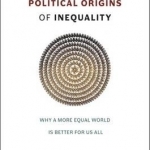
The Political Origins of Inequality: Why a More Equal World is Better for Us All
Book
Inequality is the defining issue of our time. But it is not just a problem for the rich world. It is...

Rooftoppers
Book
This is the winner of the Blue Peter Book Award and the Waterstones Children's Book Prize, and...
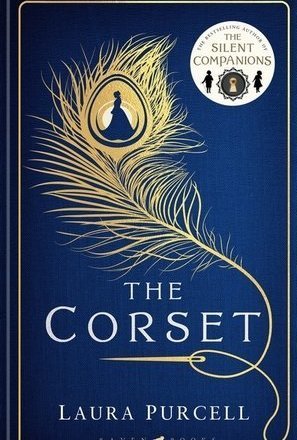
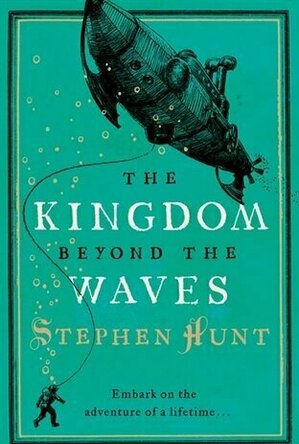
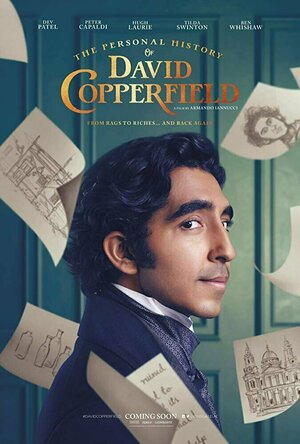
Sarah (7800 KP) Oct 17, 2018